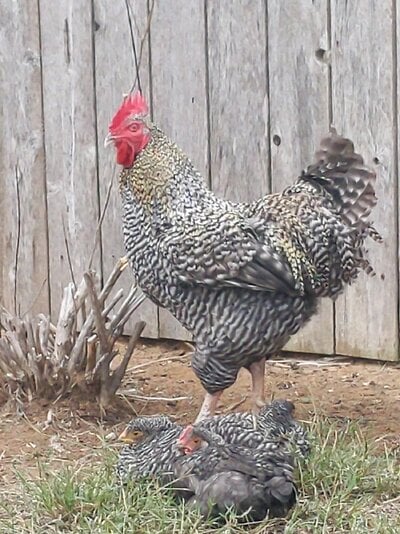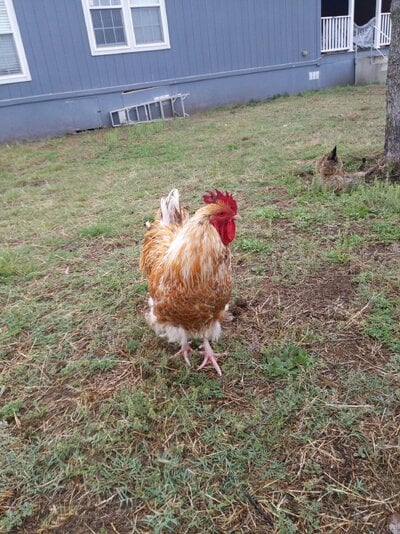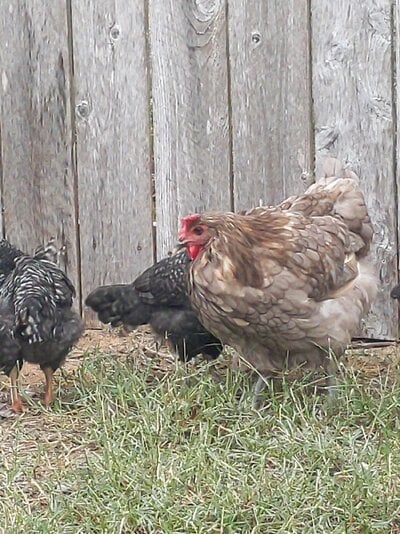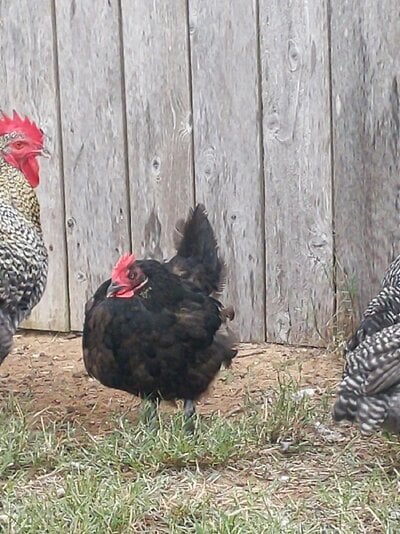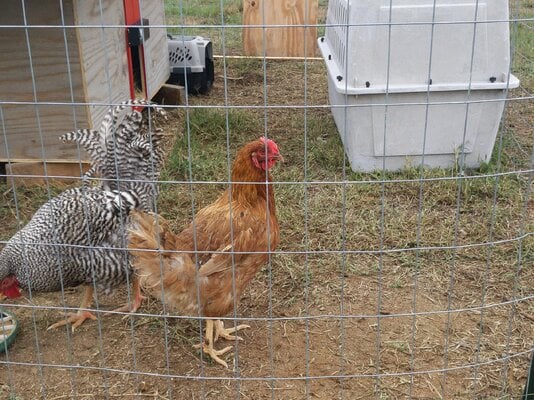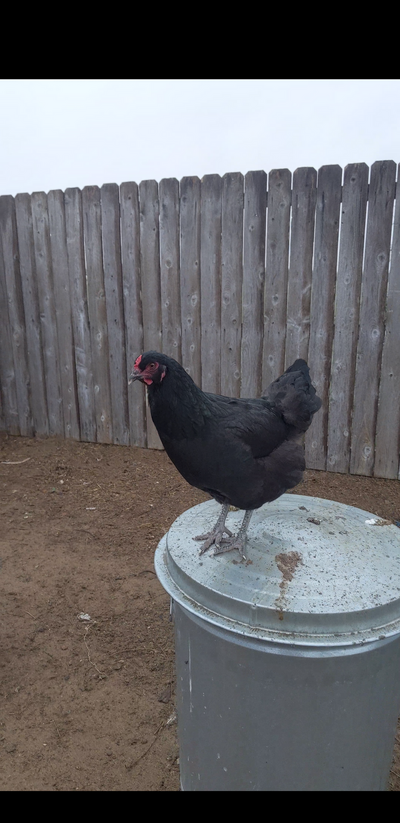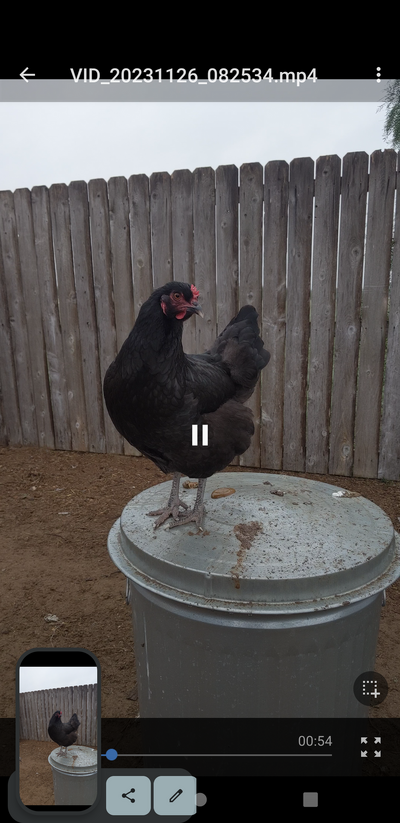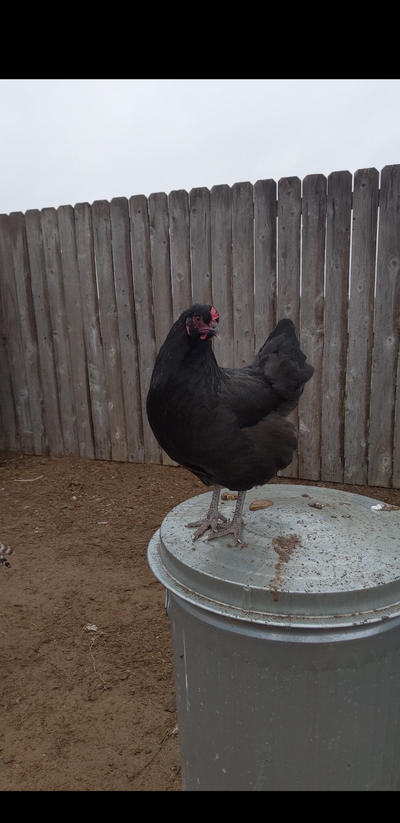LuciferRoo
Songster
If a rooster mates with a hen and both of them are mixed, will their offspring look the same or different?
I had a great girl hatch this spring. She is big, friendly without being annoying and I like the way she looks. She is all black but when she spreads her wings, there is white feather at the tip of each wing.
I would like to hatch more like her.
I think I know the parents as there was only a choice of 2 roosters and 4 hens. Only one hen is black. The likely rooster is a mix and looks l a lot like Barred Rock
I had a great girl hatch this spring. She is big, friendly without being annoying and I like the way she looks. She is all black but when she spreads her wings, there is white feather at the tip of each wing.
I would like to hatch more like her.
I think I know the parents as there was only a choice of 2 roosters and 4 hens. Only one hen is black. The likely rooster is a mix and looks l a lot like Barred Rock




